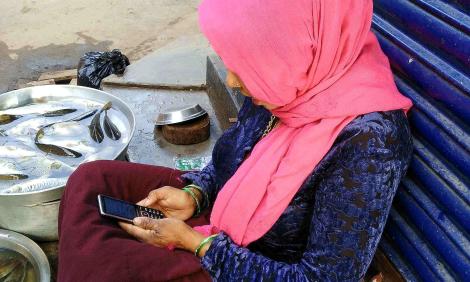
In depth
Use of social media in Manipur – Women lag behind in technological advancement
Access to the internet is finally a priority for companies and acknowledged as human right by governments. However the gender digital divide persists, and in this article we explore what uses women make of the internet in urban and rural parts of Manipur. Is this use limited to social media, what about the generation gap, and the rampant spread of election propaganda?
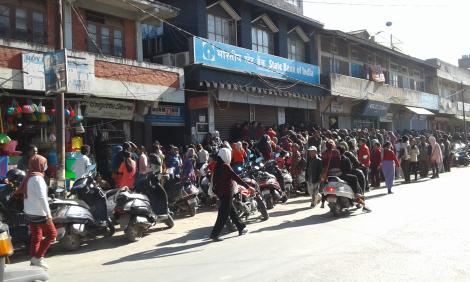
Review
How internet shutdowns affect the lives of women in Manipur
What is the experience of living through frequent network shutdowns and bans on mobile internet in the context of Manipur, a region located northeast of India. This article reviews a report on shutdowns in the region, and explores the specific impacts on women, and more broadly on people living in a sensitive region.

In depth
Inclusion, mobility and connection: diverse uses of mobile phones for women with disability
Can technology-based solutions improve the quality of life for people with disabilities? Srinidhi Raghavan interviews various women who talk about how mobile phone usage has benefitted them in terms of communication and social interaction, but also about their real concerns around privacy.
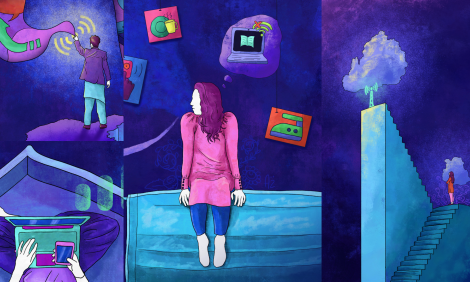
Feminist talk
Patriarchal Control As Hindrance To Digital Access for Women in Pakistan
Patriarchal restrictions on internet access lead to impacts that affect all aspects of women's lives in Pakistan. This familial control is not only detrimental to their economic and educational growth, but also is a threat to their safety and health. In this series of illustrations, Aniqa Haider sheds light on the impact of gender digital divide in Pakistan.
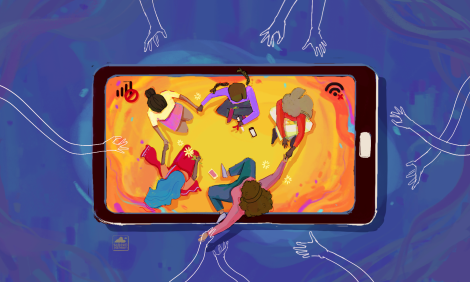
Feminist talk
Shattering Women’s Futures: Evidence Of Patriarchal Control Of The Cybersphere In Sri Lanka
Patriarchal control on digital access in Sri Lanka continues to keep women away from opportunities and connections, creating a sense of alienation amongst them. Zinara Rathnayake discusses how family restrictions on the ownership and usage of the internet and smartphones impact Sri Lankan women.
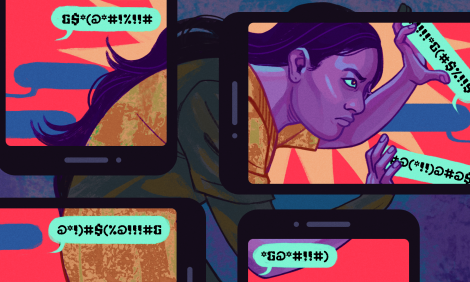
Feminist talk
In Conversation: Online Violence Bars Women and LGBTQI+ Folks' Access to the Internet in Myanmar
Sexism, misogyny and homophobia bars women and gender-diverse folks' access to the internet in Myanmar, leading to violence to continue to perpetuate without any repercussions for perpertrators. In this podcast, Nandar talks to a digital security expert about experiences of vulnerable people on the internet.

Feminist talk
Commodifying Yourself For Digital Access in Malaysia
A short comic on the anxieties of sharing yourself and your work online, and how one has to commodify all aspects of themselves online, which can open doors to unwanted risks and online hate.
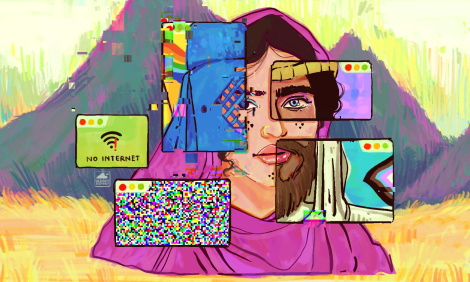
Feminist talk
Afghan Queer Community’s Access to The Internet Is A Double Edged Sword Under Taliban Rule
As the Taliban government took over Afghanistan in 2021, the already limited space for women and LGBTQI+ folks started to shrink even more. The effects were visible not only in public offline spaces, but very clearly on the internet as well, as members of the Taliban surveilled on people through their social media activities, and subjected them to physical violence. Artemis Akbary speaks to…
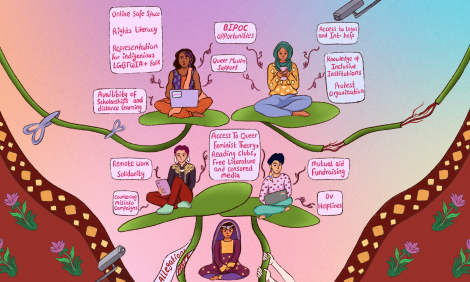
Editorial
Access Denied: Gender Digital Divide As A Form Of Violence in South and Southeast Asia
Despite the boom in the usage of the internet and technology in the past few decades, gender digital divide continues to be a hindrance around the world that bars women, non-binary and gender diverse people from accesssing the full potential of this communication marvel. As a result, they are left behind as the world, led by cisgender heterosexual men, moves forward, making structural gendered…

Access Denied: Gender Digital Divide As A Form Of Violence in South and Southeast Asia
While the significance of digital access cannot be contested, in small pockets of Asian communities and households, the internet continues to be a luxury for most people for various reasons, including the lack of financial resources, absence of infrastructure, or political and/or patriarchal control. And much like everything else, this lack of digital access impacts women and LGBTQI+ folks …




